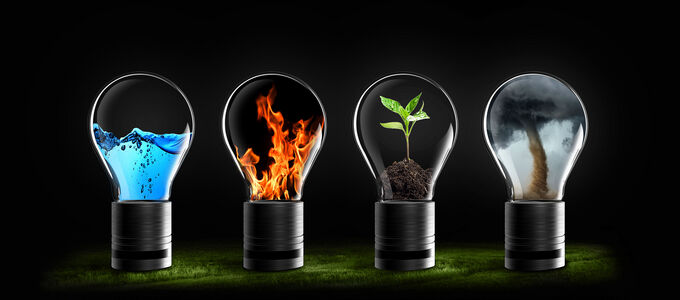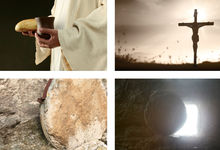Earth, water, fire, and air: where God reveals Himself
Where does God live and how does He reveal Himself to us humans? This is an age-old question—and one that not only interests children—for which there are many answers. Some of them will be explored in the New Apostolic divine services in August.

God is everywhere: above, below, on the right and on the left—in heaven, on earth, in nature, and in the four elements earth, water, fire and wind. This is the theme for the Sunday sermons in August. Four Sundays, four elements.
Earth
The sermon on the first Sunday will focus on the earth, or more specifically, the dust from which man was created: “And the Lord God formed man of the dust of the ground, and breathed into his nostrils the breath of life; and man became a living being” (Genesis 2: 7). This Bible text clearly shows that human beings have a strong connection to the space and environment in which they live. Man is formed from the dust and will return to the dust. And the implication here is: man is responsible for the earth.
This action of creation can of course also be related to the beyond: the soul, which constitutes our existence as a person, places us in a direct relationship with God. Human beings are therefore also urged to lead a spiritual life.
Water
The sermon on the second Sunday introduces the element of water. Without water life is impossible. Water can therefore also be used as an image for the essentials of salvation. In the sermon, reference will be made to baptism, in which water is the essential element. It will also be made clear to the congregations that water refers to God’s word and the sacraments, which are both indispensable for our salvation. God gives us the water of life, and it is up to us to accept and drink it in order to receive salvation. Just like the woman at Jacob’s well in Jesus’ time, who understood what was important: to provide the element of water and to accept God’s salvation.
Fire
Fire not only consumes, but also creates new life. The Bible refers to fire when it comes to revealing the omnipotence of God. This is the starting-point for the sermon on the third Sunday. The burning bush is probably the most familiar example.
In the New Testament, fire is also a symbol of the Holy Spirit. John the Baptist promised that there would be one who would come after him who would baptise with fire. This is Jesus Christ, who has not stopped doing so until day. So fire is a sign of the presence of God, of the Spirit, and of judgement that still burns to this day.
Air
“And after the earthquake a fire, but the Lord was not in the fire; and after the fire a still small voice” (1 Kings 19: 12b). Elijah fled into the desert, where God provided food for Him so that he would be able to continue on his journey. Elijah rested in a cave where God came to him in a still small voice, a gentle breeze. This encounter gave Elijah new courage to move on and complete his mission. The last Sunday in August is therefore dedicated to the wind, in other words, the air that we all need in order to live. Let us not only expose ourselves to the noise of everyday life, but listen for God’s voice in the silence. We can also experience the presence of God in the silence of prayer.
Photo: PHOTO JUNCTION - stock.adobe.com















